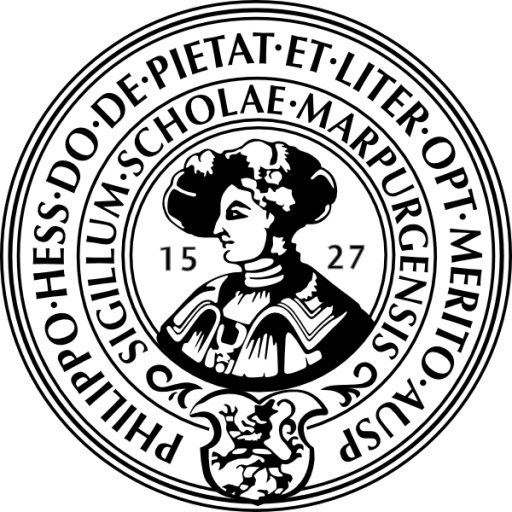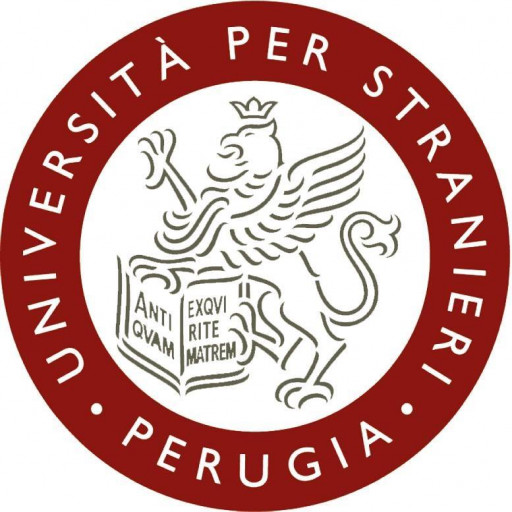Photos of university / #philippsunimarburg
The Bachelor of Arts in International Development Studies at the University of Marburg offers a comprehensive interdisciplinary education focused on the social, political, economic, and environmental dimensions of development processes worldwide. This program is designed to equip students with a deep understanding of the complex challenges faced by developing countries and marginalized communities, as well as the analytical skills necessary to critically assess development policies and strategies. Throughout the course of study, students engage with a variety of disciplines including political science, economics, sociology, cultural studies, and environmental science, allowing them to develop a holistic perspective on global development issues.
The curriculum emphasizes both theoretical foundations and practical applications, providing students with opportunities to participate in research projects, internships, and fieldwork. These experiential learning components aim to foster a hands-on understanding of development work and enable students to apply their knowledge in real-world settings. The program also encourages an international outlook, with courses offered in English and opportunities for international exchanges, preparing graduates to work effectively in diverse cultural and geographical contexts.
Students will explore key topics such as poverty alleviation, social justice, sustainable development, human rights, conflict resolution, and global governance. The program emphasizes critical thinking, ethical considerations, and a solutions-oriented approach, preparing graduates for careers in NGOs, governmental agencies, international organizations, development consultancy firms, and research institutions. Moreover, the program supports the development of language skills and intercultural competencies, recognizing their importance in international development work.
Graduates of this program will possess both the theoretical knowledge and practical skills required to analyze development challenges and contribute to positive change on a local, national, and global scale. The Bachelor of Arts in International Development Studies at the University of Marburg aims to cultivate socially responsible, informed, and capable professionals committed to fostering sustainable and equitable development across the world.
Educational organisation
Students spend the first year at Kent University and the next at Philipps-Universität Marburg.Programme structure
First year
Autumn term (September-December) at Kent University
Three modules of 10 ECTS credits (20 Kent credits) each
Required:
Philosophy and Methodology of Politics and IR
Conflict Resolution in World Politics
Optional:
International Relations Theory
Federalism and Federal Political Systems
Decision-making in the European Union
International Security in a Changing World
Terrorism and National Security
International Political Economy: Conflict, Co-operation, and Institutions
Designing Democracy
Spring term (January-April) at Kent University
Three modules of 10 ECTS credits (20 Kent credits) each
Required:
Theories of Conflict and Violence
Optional:
Negotiation and Mediation
Human Rights in a World of States
European Public Policy
American Foreign Policy: Ordering and International
Regional Conflict & Security
Resistance and Alternatives to Capitalism and Democracy
Summer semester (April-September) at Philipps-Universität Marburg
Required:
Internship of at least 10 weeks (students choose the organisation and location)
Optional module of six ECTS credits
Intensive language and preparation course at Philipps-Universität Marburg in September
Second year
Winter semester (October-March) at Philipps-Universität Marburg
One required module of 12 ECTS credits (24 Kent credits) and one optional module of six ECTS credits (12 Kent credits)
Required:
Intergroup Conflicts I
Optional:
Critical Approaches to Peace and Conflict Studies
Violent Conflicts and Peace Processes in World Society
Development and Peace
Mediation
Social Structures of Conflict and Peace
Project management
Language training in German
Summer semester (April-September) at Philipps-Universität Marburg
Required:
Intergroup Conflicts II
Master dissertation of 14,000 words (due by August)
Upon successful completion of the programme students will be awarded an MA degree in Peace and Conflict Studies from Kent University and an MA degree in Peace and Conflict Studies from Philipps-Universität Marburg.
Study abroad unit(s)
First year at Kent University and an internship of at least 10 weeksInternships
Internship of at least 10 weeksForms of assessment
Essays, term papers, written exams, Master's dissertationCourse objectives
This multidisciplinary programme aims to:1. provide a programme that will attract and meet the needs of both those seeking to prepare for careers in fields concerned with international conflicts and those with a general intellectual interest in international conflict analysis
2. provide students with a research-active teaching environment which gives them a good grounding in the study of international and domestic conflict and war, cooperation and peace
3. examine how state, non-state and supra-national actors behave and interact in conflict situations
4. ensure that students acquire a solid knowledge of theories of the causes and dynamics of different kinds of conflict and the means to overcome them
5. ensure that students who specialise in regional conflicts acquire an advanced understanding of the historical, cultural, social and institutional context of the area to be studied
6. prepare students for various careers in jobs related to international conflict analysis as well as for career changes in the spirit of lifelong learning
7. develop students' general research skills and personal skills (transferable skills)
8. provide an opportunity to study abroad in a different academic environment
9. contribute to students' learning experience by offering them the opportunity to approach the study of international conflict analysis from a different intellectual and cultural tradition
10. enable the students to apply their knowledge and skills while interning with organisations working on peace and conflict related issues
Language requirements
The university requires all non-native speakers of English to reach a minimum standard of proficiency in written and spoken English before beginning a postgraduate degree. You should provide us with one of the following:IELTS certificate with a minimum score of 6.5
Cambridge Certificate of Proficiency in English grade C
Only English language tests taken up to a maximum of two years prior to the start date of registration will be accepted for admission into the university.
Applicants who wish to start at Marburg or who wish to take modules in German during their second year and whose first language is not German need to provide evidence of their proficiency in written and spoken German. This requires a DSH 2 certificate.
Academic requirements
You should have a good Honours degree usually in Politics, Government, International Relations, International Studies or European Studies or in a cognate discipline in social science (e.g., Geography) or humanities (e.g., History). However, students applying from other disciplines will also be considered.Applicants whose first degree is from a German university must achieve one the following qualifications: Diplom; Erstes Staatsexamen; Magister Artium; Fachhochschuldiplom; Bachelor; Bakkalaureaus at levels "gut" or "sehr gut". The new Bachelor's can be regarded as equivalent to a UK Bachelor's (Honours) and the Magister/Master to a UK taught Master's.
Enrolment fees
The university charges a registration fee of 50 EUR and student union fees. State law requires all students to be members of the student union. These fees entitle students to subsidised accommodation as well as meals and automatically include a free travel pass for public transport in most of the state of Hesse. In summer 2016, the student union dues amounted to approx. 313 EUR.For further information, see: http://www.uni-marburg.de/studium/studsek/studienformalitaeten/dues-administrative-fee.
Costs of living
Living costs depend on individual lifestyles and on regional prices. The Marburg foreigners' registration office ("Ausländerbehörde") requires international students to prove that they have at least 600-700 EUR per month at their disposal in order to cover their living costs.For further information, see: http://www.uni-marburg.de/studium-en/zas-en/finanzierung/index_html.
Job opportunities
Within certain legal limits, job opportunities are available for international students. Fluent German is required for most jobs. Employment for international students must be approved by the foreigners' registration office. There are hardly any legal restrictions on taking academic assistant jobs at the university.For further information on job opportunities and university career services, see: http://www.uni-marburg.de/studium-en/zas-en/finanzierung/Jobs.
Arrival support
Marburg is located 100 km north of Frankfurt and can easily be reached by plane, public transport, or by car. For detailed descriptions of the different routes to Marburg and to find one's way around the town, see: http://www.uni-marburg.de/studium-en/zas-en/arrivemr.Services and support for international students
Philipps-Universität Marburg offers an intensive one-week welcome and orientation programme for all new international students. It includes a variety of services such as practical help with authorities, setting up health insurance, and opening a bank account. It also includes cultural and social events and the opportunity to make initial contacts with fellow students. The second week is usually dedicated to orientation programmes organised by the faculties.Special services for doctoral candidates are provided by Marburg University Research Academy (MARA).
For further information, see:
http://www.uni-marburg.de/international-en/incoming?language_sync=1
http://www.uni-marburg.de/international-en/incoming/stud/prac/orient/index_html?set_language=en
Accommodation
The situation on the accommodation market in Marburg is not easy. However, the university assists international students in finding suitable and affordable accommodation.The Studentenwerk Marburg maintains 20 student residence halls with a total of 2,049 units. Apart from single rooms, there are 129 flats with two to three rooms for married couples. Only students registered at Philipps-Universität Marburg are entitled to a place in a residence hall. The Konrad Biesalski House, in which handicapped and non-handicapped students live together, offers round-the-clock assistance. There is a bus service and other services such as physiotherapeutic exercises and massage baths.
Many students live in private accommodation or shared flats. The supply of flats in the centre of Marburg is limited, especially in the Oberstadt, but the situation on the outskirts of Marburg and in the immediate vicinity is better. There are good bus connections (bus timetables are available in the Customer Centres of the Municipal Department of Works on Rudolphsplatz). Experience shows that demand is highest on the accommodation market at the beginning of each semester (April, October), so you should start looking for accommodation around the end of the previous semester (February, July) if possible.
For further information, see: http://www.uni-marburg.de/studium-en/zas-en/livinginmr/accommodation.










